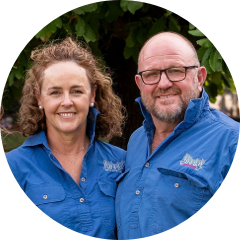Increasing the effectiveness of N fixation
This project was completed in 2021.
Project Officer
Kate Coffey
WHY THIS PROJECT WAS NEEDED
As well as generating useful income, pulses provide significant benefits to following crops, including nitrogen (N) fixation which can boost nitrogen supplies to following crops. Pulses are estimated to fix about 120 kg N/ha, or more than 220,000 tonnes of nitrogen across Australia, worth about $220 million each year.
However, not all pulses develop nodules well or fix nitrogen to their potential, especially on acidic soils. It was recently estimated that nitrogen fixation could be increased by 25%. Several GRDC project investments have been designed to help reach this target, however these project outputs require further extension and communication to farmers. This GRDC project investment aimed to improve nitrogen fixation of winter pulse crops and to promote their wider adaptation and adoption.
In short: This project aimed to improve nitrogen fixation in winter pulses, focusing on best-practice inoculation and management to counter soil acidity. The project was a collaborative effort, with various organisations aiming to optimise pulse nodulation and improve production outcomes in their regions.
Project focus
Project activities were designed to promote best management inoculation and pulse management practices, raising awareness and knowledge around pulse nodulation and nitrogen fixation. The project also aimed to raise awareness of the impact of soil acidity, especially subsoil acidity.
Demonstration trials were established at St James (lentils and chickpeas) and Bungeet (faba beans) during 2019 to promote effective inoculation and pulse management practices, raise awareness and knowledge around pulse nodulation and nitrogen fixation, as well as the impact of soil acidity on crop yields.
In 2020, a demonstration site at Murchison was sown to faba beans.
Project outcomes
Key messages from the 2020 trial were that:
- Sowing rate, rather than inoculation, was the main determinant of faba bean dry matter (DM) production.
- It was estimated the faba beans in this demonstration trial fixed between 101–129 kilograms of nitrogen per hectare, based on above-ground DM production.
- High harvest indices (HI) in the trial (49–64%) indicated a considerable amount of the nitrogen fixed was removed in the grain.
- A new DNA test available to measure Group E and F rhizobia in soil accurately predicted the moderate levels of nodulation measured in the trial.
- Inoculation responses are more likely in soils with lower pH (<pHca 5.0).
Where faba beans are sown into acidic layers at depth, the likelihood of inoculation responses will further increase.
- Results from the 2020 trial were published in Research for the Riverine Plains, 2021
- Results from the 2019 trial were published in Research for the Riverine Plains, 2020
Find out more
For further information, please contact Riverine Plains Senior Project Manager Kate Coffey at kate@riverineplains.org.au
Project investment
This was an investment of the Grains Research and Development Corporation (GRDC).
Partners
Focus areas
MORE ON Grains
Our research enhances food production, increases environmental resilience and improves community connection across the Riverine Plains. See how our research creates impact.
-
Grains
Sustainability
-
Grains
Business
-
Grains
Sustainability
-
Grains
Livestock
-
Grains
Livestock
-
Grains
Sustainability
-
Grains
Business
-
Grains
Sustainability
-
Grains
-
Grains
-
Soils
Grains
-
Grains
Soils
-
Drought
Grains
-
Soils
Grains
-
Grains
-
Grains
Soils
-
Soils
Grains
-
Fodder
Grains
-
Grains
-
Grains
-
Grains
Soils
-
Sustainability
Grains
-
Grains
Sustainability
-
Soils
Grains
-
Grains
Sustainability
-
Livestock
Grains
-
Grains
Soils
-
Sustainability
Grains
JOIN RIVERINE PLAINS
Riverine Plains provides opportunities to see new research and innovation, connect with rural communities, and attend informative events.


